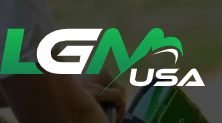A Beginner's Guide to Choosing Your First Garden Tractor Loader Kit

Adding a front-end loader to your garden tractor is one of the most exciting upgrades you can make. It is a decision that promises to save you from countless hours of back breaking work. But the research process can be overwhelming, with a lot of technical-jargon and very different types of products all using the same name. As a beginner, you might be tempted by low prices or "DIY" promises, but choosing the wrong kit can lead to a lot of frustration. This guide is here to help you ask the right questions. Companies like LGM USA are focused on creating positive experiences for homeowners, and that starts with making an informed-choice.
First, you need to understand the main-types of "kits" available. The most important distinction is "weld-on" versus "bolt-on." A weld-on kit is a true DIY project. It requires you to be an expert welder, fabricator, and mechanic. It is a complex, time consuming, and risky project that can result in damage to your tractor if not done perfectly. For a beginner, this is almost certainly not the right choice. A "bolt-on" kit is a much better term for what you are likely looking for: a complete, pre-built loader system, engineered by a company to fit your tractor perfectly, that you can install (or "bolt-on") in an afternoon.
The second question to ask is about power: hydraulic versus electric. Most kits you will see are hydraulic. This is a traditional technology that uses a pump and hot, pressurized fluid. It is powerful, but it also means a complex installation (adding the pump, hoses, and fluid-tank) and a lifetime of maintenance (checking for leaks, changing-fluid, and slow performance in the cold). A more modern, simpler option is the all-electric loader. This system runs off your tractor's own battery, using powerful, sealed electric motors. It is clean, maintenance free, and much easier to install. For a homeowner who just wants the tool to work, an electric system is often a less intimidating, more reliable choice.
Next, you must talk about compatibility. This is a non-negotiable point. A loader is not a "one size fits all" attachment. It must be engineered specifically for your tractor's model. This is for safety. A proper kit will come with a "sub frame" or mounting bracket that bolts to the strongest parts of your tractor's frame. Avoid any seller who offers a "universal fit" kit, as these can put stress on weak points and cause serious damage. Your first question to any seller should be: "Do you have a system designed for my exact tractor?"
Finally, consider the total cost, not just the purchase price. A cheap, weld on kit might save you money upfront, but it could cost you thousands if it damages your tractor. When you are looking at garden tractor front end loader kits, think about the value of your time for installation, the cost of future maintenance, and the long term health of your tractor. A slightly higher initial investment for a complete, bolt on, maintenance free system is often the smarter and more economical choice in the long run.
Choosing your first loader is a big step. By focusing on a "bolt-on" system, considering an electric option, and demanding a model specific fit, you can be confident you are getting a safe, reliable tool that will truly save your back and your weekends.
To see what a modern, homeowner friendly, and fully engineered system looks like, LGMUSA is a great resource for information.
- AI
- Vitamins
- Health
- Admin/office jobs
- News
- Art
- Causes
- Crafts
- Dance
- Drinks
- Film
- Fitness
- Food
- Παιχνίδια
- Gardening
- Health
- Κεντρική Σελίδα
- Literature
- Music
- Networking
- άλλο
- Party
- Religion
- Shopping
- Sports
- Theater
- Wellness


